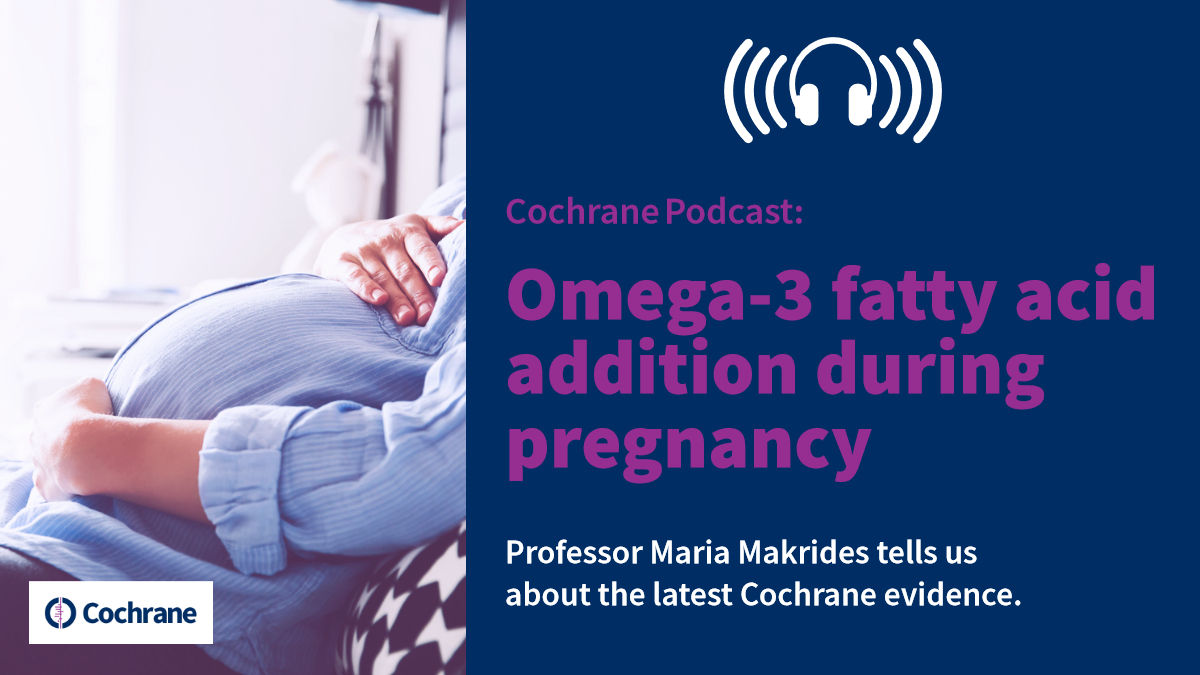
Omega-3 fats are the subject of more than two dozen Cochrane Reviews for conditions including cardiovascular health, dementia and gastrointestinal problems. In November 2018, the review on the effects on preterm birth when these are taken by pregnant women was updated. The review was led by Associate Professor Philippa Middleton and Professor Maria Makrides, from the Healthy Mothers Babies and Children theme at the South Australian Health and Medical Research Institute. Professor Makrides tells us about the latest evidence.

"In Australia, about 1 in 12 babies are born prematurely, this means that they are born more than three weeks before the usual 40 weeks of pregnancy. This is a problem because premature birth is responsible for around 85% of all health complications in early life and is the leading cause of death in children under 5.
There are very few strategies to prevent women from going into early labour and delivering a premature baby. However, one of the things that our research team has been studying is whether the omega-3 long-chain fatty acids, such as DHA and EPA that are found in fish and fish oils, can extend the length of pregnancy.
We have now completed our Cochrane systematic review that brings together all the published randomised trials that test the effects of these long chain omega-3 fats during pregnancy on the health of mothers and their babies. We included 70 studies, which contained more than 19,000 women in the trials. The review shows that there is high-quality evidence that supplementation with long-chain omega-3 fats during pregnancy, particularly with DHA, reduced the risk of having a premature baby by 11% and it also reduced the risk of having a very premature baby, born before 34 weeks, by 42%.
Based on these findings, we suggest that pregnant women with one baby take between 500 and 1000mg of long-chain omega-3s every day from the 12th week of pregnancy. It’s best if these supplements contain at least 500mg of DHA per day. As a result of the review, we are revising clinical practice guidelines for health professionals who are working in pregnancy care to try and encourage pregnant women to supplement their diets with omega-3s, to increase their chances of having a healthy full-length pregnancy."
- Read the Cochrane Review
- Read the news item about this Cochrane Review in English, French, German, Malay, Russian, and Spanish
- Listen to more Cochrane Podcasts
- Get Cochrane Podcasts on iTunes
- Visit the Pregnancy and Childbirth website

